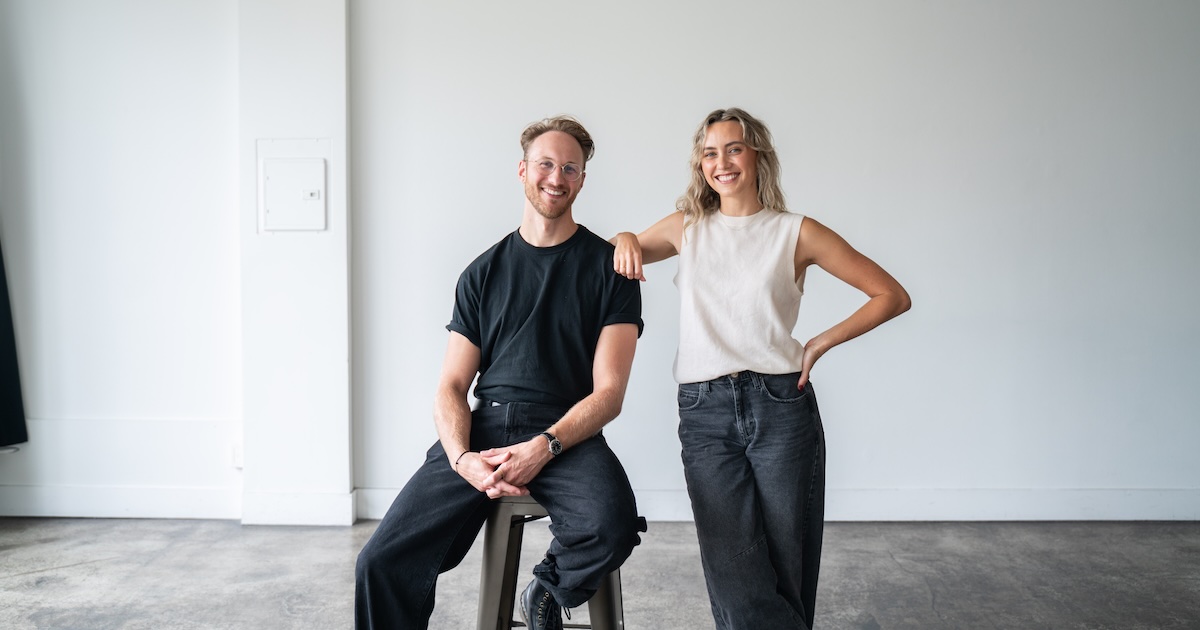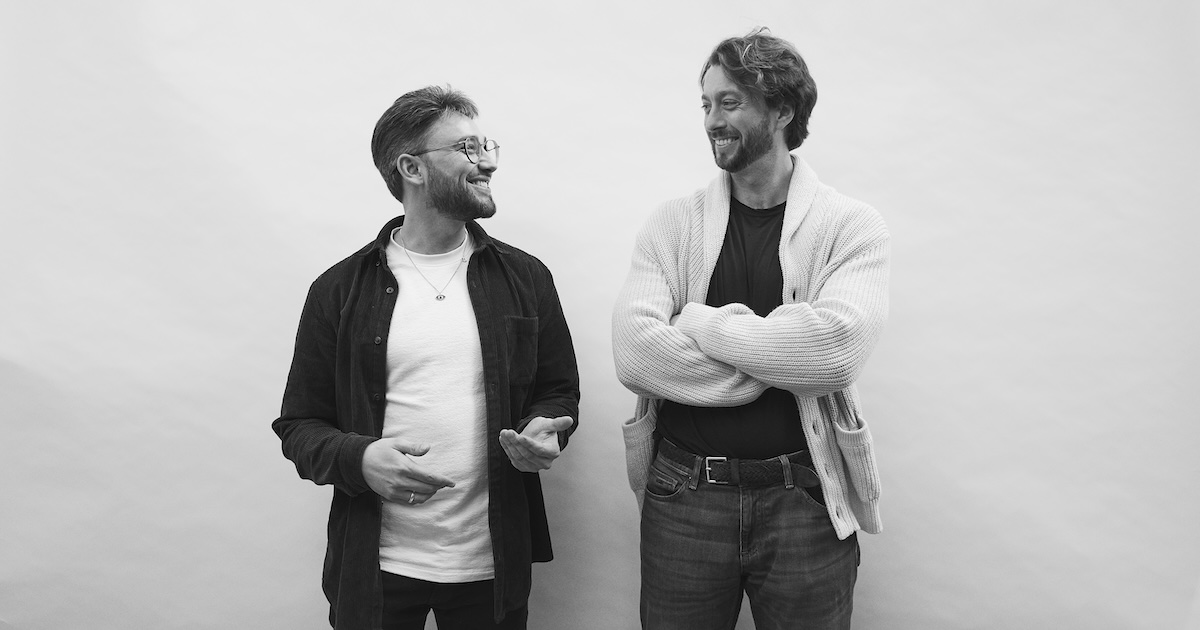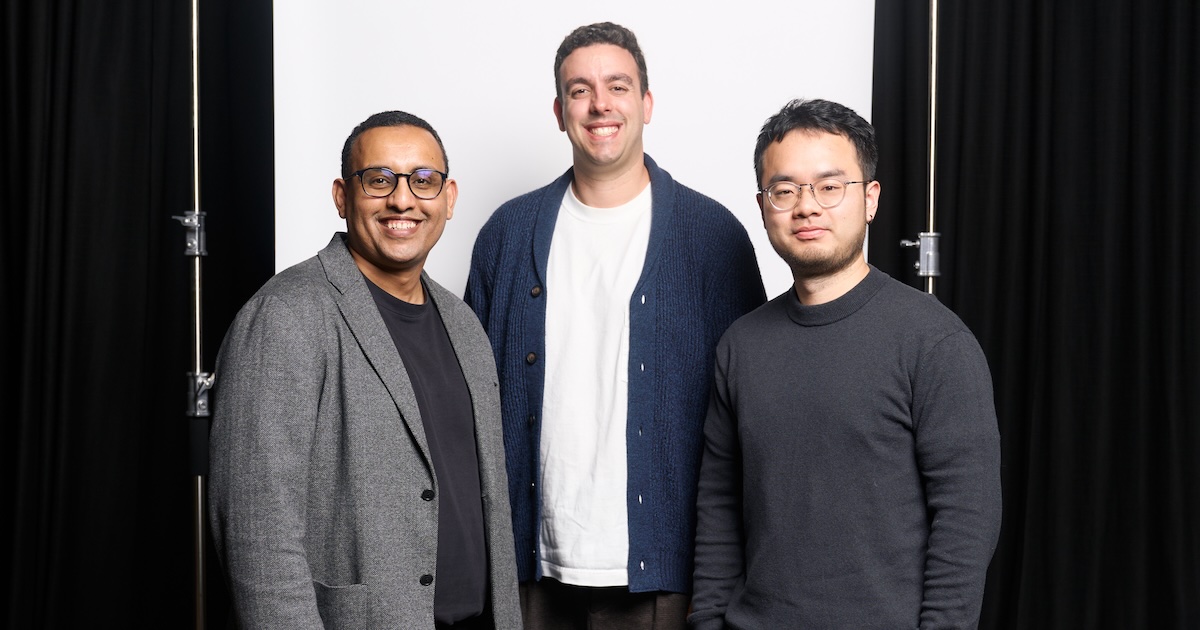
Spotlight On: Franki Chamaki, HIVERY
HIVERY is a company we’ve gotten to know and love over a few years now. Founded by a group of serial entrepreneurs and data scientists, HIVERY is at the forefront of the data revolution in retail.
Hot off the back of their Series B round earlier this year, we spoke to co-founder and Marketing VP Franki Chamaki about his early entrepreneurial pursuits, starting a company from a Coca-Cola hackathon, and why supply chain data is the key to the perfect store.
Blackbird: We hear your entrepreneurial spirit started young with re-inventing mouse traps and selling your classmates recycled rubber erasers. What early lessons did you learn about innovation?
Franki Chamaki: Yes - my mother worked at a stationary store when I was in school, and then used to throw out these rubber offcuts that were too long. So my brother and I would cut 'em up, write our names and “brand” them, then we’d go out to the local neighborhood near our school and sell them for 20 cents each. This really gave us a sense of the entrepreneurship spirit where you could take basically nothing or waste or junk, and turn it into something valuable.
BB: You've held roles in accelerators, huge FMCG companies and management companies - what do you consider to be the throughlines in your career, and how did this ladder up to founding HIVERY?
FC: I would say the thing that connects them is the sense of curiosity.
Each role is different, each organization is different, each culture is different and so forth. So the sense of curiosity and seeing how it can make a difference, and make a change, that has been consistent across the variety of roles. The other throughline for me has been adaptability - finding ways forward. So stay, staying curious in the role or in the organization and then adapting to the challenges of that organization or that role.
BB: We heard the idea for HIVERY came together at a hackathon you were involved with - tell us about this, and how you first met your co-founders?
FC: It’s a great story actually! The hackathon started off of Coca-Cola wanting to go out to the general public and tap into startup thinking. And so what happened was they [Coca-Cola] said, “Hey, how can we get entrepreneurs to come in house and leverage our billion dollar assets at data assets, our distribution assets, and use that to come up with ideas to solve some of the challenges they’ve faced?” Because Coke is in more countries than FedEx and UPS combined, they have a bigger community than some countries. They have this incredible reach through their distribution channels - if you look at Facebook, for example, there are a million fans. So they were thinking about what entrepreneurs could do with those distribution channels, and what ideas would make the best use of those channels.
My background was in crowdsourcing and in design thinking, so the first hackathon we did was a design thinking approach. You know, building empathy towards a problem area, interviewing people, gathering insights, and coming up with sort of design principles, ideas, design principles that the ideas should be based on. The hackathon asked for participants to use five or three design principles that the solution would have to hit. In the end, it was a hydration sensor that we developed, and the IP was actually sold to another company which we (Coca-Cola) invested in.
The other area that Coke were interested in was in data leveraging our relationship with the bottler. Coca-Cola sold syrup rights and branding to Coca-Cola Mattel, so we partnered with them and said, “Hey, you've got a lot of supply chain data, how about we take that and, and look at new, look at your problems and see how we can actually crowdsource?” The combination of the first hackathon being around design thinking, and then the second being around crowdsourcing innovation frameworks was where we first developed the idea that would become HIVERY.
BB: HIVERY has built a market-leading product. How did you set this up from the beginning, and how have you nurtured this as the company and its offering have grown, and at times pivoted?
FC: It really comes back to our values. At the beginning, we took a couple months to really frame these focus areas; the perfect supply chain of the perfect store. We had all these themes and one of the themes was the perfect store. If you looked at the DNA spirit of the company, of looking at new ways of doing things, challenging the status quo, this idea really led to our values here and in particular to be a pirate.
We created our values right from the beginning, because what happens when you're a startup, you start with a few founders who all deeply know the purpose and values of the company but as the company grows to now over a hundred, how do you communicate that stuff that we inherently knew what we were doing, that we were entrepreneurial in our thinking, that we respected each other's quirkiness. That we always strive to make it simple as much as possible in our communicating internally and externally, but we are also passionate about our points of view and coming up with something different and better. And that we’re also not afraid to find new ideas and, and experiment with them and challenge if that experiment would work better.
So yeah, back to this question around this DNA, it really comes down to the values and that these values represent our team, our company, but also each person brings their own unique values. The values don't change, but the execution of those values change. The values guide our recruitment and our onboarding. It's got this unique Australian personality that comes through.
BB: You've just raised a Series B round. What are the plans for this investment - we hear a global expansion is the main focus for the coming months....
FC: It's all about hiring and accelerating our growth expansion strategy. We have a great market fit, which reinforces how unique the problem that we solve is. And it's a big problem - we're doing very complicated augmenting strategy simulation around assortment and space that has never been done. The ability to run different scenarios, ask questions like “hey, what if I increase this product? What do I send where? These foods will expire in three months versus these ones - which store should I distribute first? If I increase my price or decrease my price, what happens to my portfolio?”
The next stage for us is all about getting that scenario right and strategy assortment and space strategy, then executing on that.
BB: Finally, what most excites you about the future of HIVERY?
FC: We are building a brand name that is transformational in the areas that we operate. So when we talk about knowing your financial impact, knowing the financial impact of any decision that you make - that is powerful. That is powerful and that's what we're changing. Giving people the ability using AI, then using technology to augment and quantify the financial decision of any assortment and space decision they're made.
And then we wanna expand that into a platform play, an enterprise play. Think of Shopify connections where you can optimize stores for any Shopify using that same understanding of the financial impact of any decision around assortment and space. That’s pretty exciting.
Franki’s Spotlight On:
A book that is worth reading or a film you loved: Sapiens for sure. An amazing book.
A podcast you never miss: I really like the Demand Gen Made Simple podcast. It talks about demand gen, but it’s more than that.
A favourite speech: Steve Jobs' Stanford Commencement speech. Very inspirational, very thoughtful. Makes you think.
View open roles at HIVERY here










